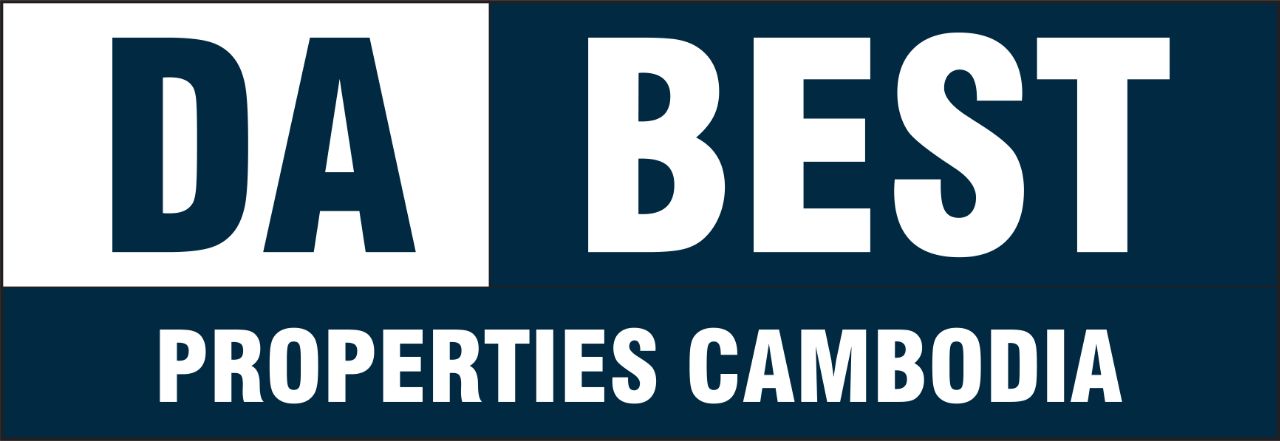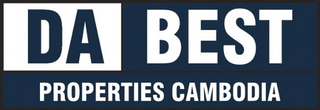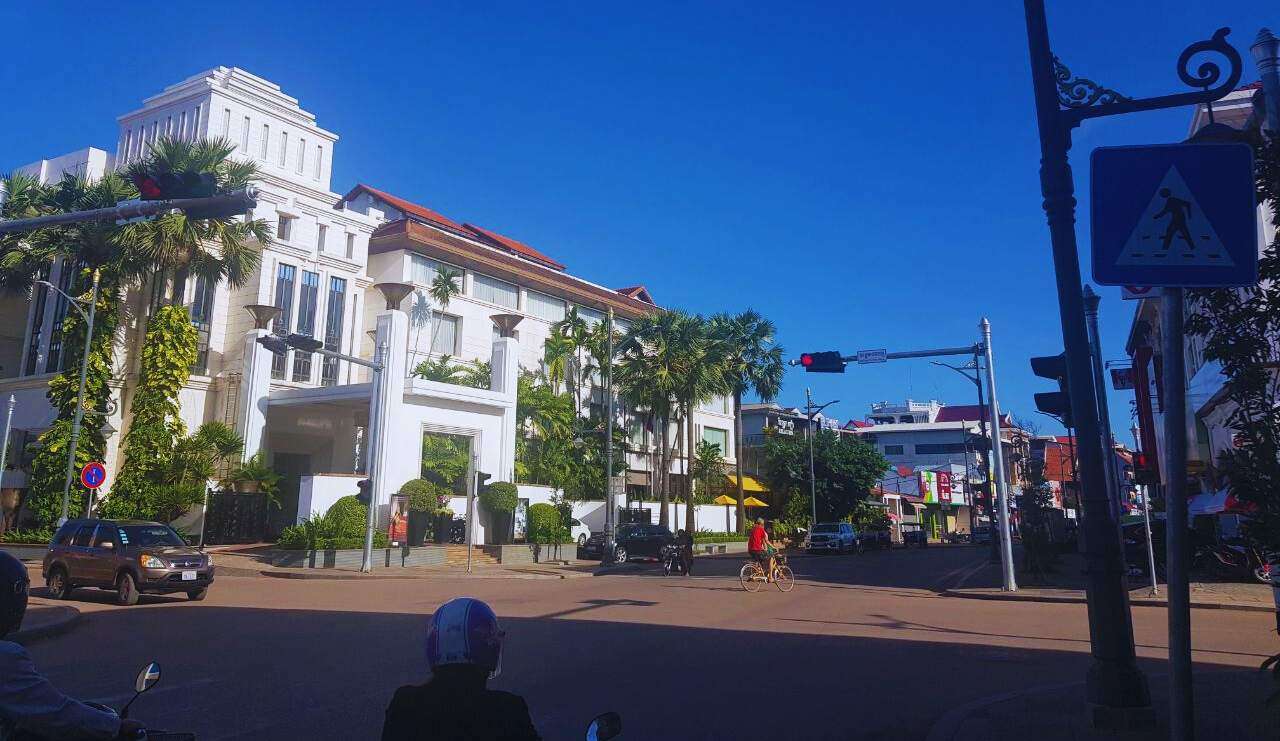How Foreigners Can Get a Mortgage for Real Estate in Cambodia
Navigating the process of purchasing real estate in a foreign country, such as Cambodia, can be challenging. With unique regulations and options like the Foreigner’s Home Loan program from the Cambodia Development Bank, your investment journey just became more feasible.
This comprehensive guide promises to demystify your path towards securing a mortgage in one of Southeast Asia’s vibrant economies. Ready to discover new horizons? Let’s dive in!
Key Takeaways
Navigating Cambodia’s property market as a foreigner? This comprehensive guide has got you covered with everything you need to know to secure a mortgage and start your investment journey.
- Foreigners can get a mortgage for real estate in Cambodia, but some specific options and restrictions must be understood.
- The Cambodia Development Bank offers the Foreigner’s Home Loan program for expatriates interested in Cambodian real estate investment.
- General requirements for foreigners include a valid passport, proof of income or financial stability, and a good credit history.
- Foreigners can finance various types of properties in Cambodia, such as condominiums and commercial spaces, but owning land directly is restricted.
Can Foreigners Get a Mortgage for Real Estate in Cambodia?
Foreigners can indeed get a mortgage for real estate in Cambodia, but it’s important to understand the options and restrictions that come with it.
Understanding the options and restrictions
Foreigners have the potential to secure a mortgage for real estate in Cambodia, but they need to be aware of the specific rules and regulations. The government allows foreign nationals to own property, however, some conditions must be met.
For instance, this ownership only extends to condominium units above the ground floor. Owning land directly is not permitted under Cambodian law. Other financing options may be limited as many traditional banks limit their services for non-residents.
One program available is offered by Cambodia Development Bank under the Foreigner’s Home Loan Program specifically designed for expatriates interested in Cambodian real estate investment.
Some investors find these restrictions stifling while others see it as an opportunity to explore different types of investments like owning Strata titles – another type of property ownership sanctioned by the Royal Government of Cambodia where foreigners can legally hold assets on leasehold or freehold basis.
The nuances of these laws can make navigating this process complex; hence professional guidance and thorough understanding become extremely crucial in such transactions.
Available bank and developer loans
Foreigners seeking a mortgage for real estate in Cambodia have several options for financing, including bank loans and developer loans. While bank financing options for foreign nationals are limited, there are still some banks that offer mortgages to expatriates.
The Cambodia Development Bank, for example, offers the Foreigner’s Home Loan program specifically designed for foreigners looking to purchase property in Cambodia. Additionally, developers often provide their financing options, allowing foreigners to secure a loan directly from the developer.
This can be particularly beneficial as it may involve less stringent requirements than traditional bank loans. Investors interested in Cambodia must explore these bank and developer loan options when purchasing real estate there.
Your Essential Guide To Visit Cambodia – Visas, Embassies, And Entry Requirements Made Easy
Requirements for Foreigners to Obtain a Mortgage
Foreigners seeking to obtain a mortgage in Cambodia must meet general requirements, as well as additional criteria depending on their employment status.
General requirements for all foreigners
Foreigners who wish to obtain a mortgage for real estate in Cambodia must meet certain general requirements. These include having a valid passport, proof of income or financial stability, and a good credit history.
Additionally, they may be required to provide a down payment ranging from 30% to 70% of the property’s value. It is important for foreigners to carefully review and meet these requirements before applying for a mortgage in Cambodia.
Additional requirements for employed individuals
Employed individuals who are foreigners seeking a mortgage in Cambodia need to provide additional documentation and meet specific criteria. Along with the general requirements, they must submit proof of employment, such as work contracts or letters from their employers.
Financial statements showing stable income and a good credit history are essential for demonstrating financial stability. Additionally, employed individuals may be required to have an existing bank account in Cambodia to facilitate loan repayment.
Understanding these additional requirements is crucial for foreigners looking to secure a mortgage for real estate in Cambodia.
Additional requirements for self-employed/business owners
Self-employed individuals or business owners who are looking to obtain a mortgage for real estate in Cambodia may have some additional requirements to fulfill. In addition to the general requirements for all foreigners, self-employed individuals will typically need to provide proof of income and financial stability.
This may include bank statements, tax returns, and business registration papers. Lenders often want reassurance that the applicant has a stable source of income and can afford the monthly mortgage payments.
Self-employed individuals must gather all necessary documentation and meet these additional requirements to increase their chances of securing a mortgage for real estate in Cambodia.
Eligible Properties for Foreigner Home Loans
Foreigners can get a mortgage for various types of properties in Cambodia, including condominiums and apartments, as well as commercial properties like offices and retail spaces. However, there are restrictions on owning land in Cambodia, meaning foreigners can only purchase buildings or structures built on leased land or under certain ownership structures.
Types of properties that foreigners can get a mortgage for
Foreigners looking to get a mortgage for real estate in Cambodia have options regarding the types of properties they can finance. One common option is purchasing condominium units, as there are fewer restrictions on ownership for expatriates.
Additionally, foreigners can own property through Strata titles, which allows them to purchase apartments and commercial units. However, it’s important to note that owning land is still restricted for foreign nationals.
To navigate the process successfully, investors must understand the laws surrounding property ownership in Cambodia and seek professional guidance when pursuing a mortgage.
Restrictions on owning land in Cambodia
Foreigners looking to purchase real estate in Cambodia should be aware of the restrictions on owning land. According to the 2010 Law on Provision of Ownership Rights, foreign nationals can own property in Cambodia if not on the ground floor or underground floor.
This means that foreigners are limited to owning condominium units and cannot directly own land for residential purposes. However, options are available through strata titles that allow foreigners to indirectly own a share of the land where their property is located.
Investors interested in Cambodia need to understand these restrictions and explore alternative financing options such as bank loans or special programs like the Foreigner’s Home Loan program offered by the Cambodia Development Bank.
Tips for Foreigners to Secure a Mortgage in Cambodia
Understand the local market and laws, work with trusted partners, improve your credit history, and consider alternative financing options to increase your chances of securing a mortgage in Cambodia.
Understand the local market and laws
To successfully navigate obtaining a mortgage for real estate in Cambodia, investors must understand the local market and laws. Familiarizing yourself with the property market trends, such as location preferences and pricing patterns, can help you make informed decisions when purchasing a property.
Additionally, being aware of the laws surrounding property ownership and foreign investment will ensure that you comply with all legal requirements. This includes understanding any restrictions on property types or ownership rights for foreigners.
Taking the time to educate yourself about the local market and laws will lay a solid foundation for your real estate investment journey in Cambodia.
Work with trusted partners
To navigate the process of obtaining a mortgage for real estate in Cambodia, it is essential to work with trusted partners. This includes reputable banks and financial institutions that specialize in providing loans to foreigners.
By partnering with experienced professionals who have a deep understanding of the local market and laws, investors can gain valuable insights and guidance throughout the mortgage application process.
Trusted partners can help ensure all necessary documentation is in order, assist with legal requirements, and advise on financing options that best suit individual needs.
Improve credit history
Improving your credit history is essential when seeking a mortgage for real estate in Cambodia. Lenders will examine your creditworthiness to determine if you are a reliable borrower.
Paying your bills on time, reducing debt, and maintaining a low credit utilization ratio can help improve your credit score. Additionally, reviewing your credit report regularly for errors or discrepancies is crucial.
Enhancing your credit history will increase your chances of securing a favorable home loan in Cambodia.
Consider alternative financing options
Foreign investors purchasing real estate in Cambodia should consider alternative financing options. While bank loans for foreigners may be limited, there are other ways to secure funding for your property investment.
One option is to work with developers who offer in-house financing programs tailored specifically for foreign buyers. These programs often come with flexible payment terms and competitive interest rates.
Another alternative is to explore private lending or peer-to-peer lending platforms that connect borrowers with individual lenders. These platforms can provide a viable solution for obtaining financing when traditional bank loans are not available or suitable.
Additionally, some investors may choose to leverage their existing assets or consider joint ventures with local partners as a means of acquiring the necessary funds for their real estate purchase in Cambodia.
Foreigners looking to invest in real estate in Cambodia can explore mortgage options available through special programs like the Foreigner’s Home Loan program offered by the Cambodia Development Bank.
While there are restrictions on property ownership for expatriates, purchasing condominium units can be a viable option. Foreigners must familiarize themselves with the regulations and seek professional advice to navigate the process successfully.
With an understanding of local market conditions and laws, foreigners can secure a mortgage and establish their roots in Cambodia confidently.
FAQs
Can foreigners get a mortgage for real estate in Cambodia?
Yes, foreigners can secure a mortgage or other home financing options when investing in property in Cambodia.
What are some housing loan interest rates in Cambodia for expats?
The housing loan interest rates differ from one institution to another and depend on various factors like your personal credit history.
How do nonresidents buy real estate in Cambodia?
Nonresidents buy real estate by meeting legal requirements, understanding their home loan eligibility, exploring available unsecured loans or personal loan options and finding suitable financing solutions as foreign nationals.
Are there specific steps to apply for a housing loan as a nonCambodian resident?
Yes, certain steps need to be followed which include researching the market thoroughly, gathering all necessary paperwork and consulting with financial professionals.
Do foreign nationals have access to all property ownership options in Cambodia?
Foreigners have access to many but not all types of properties due to certain restrictions related to land ownership; they must acquaint themselves with these rules before pursuing any investment opportunities.



